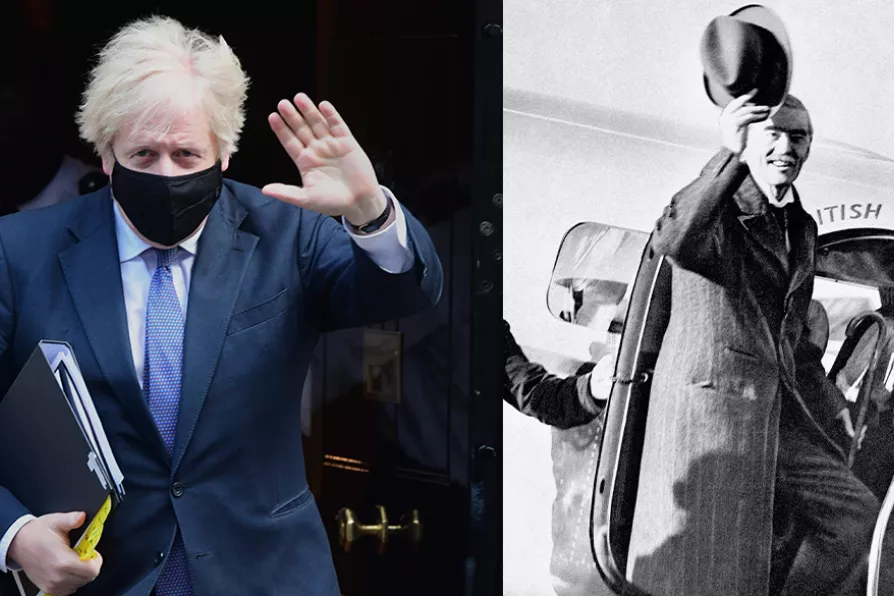Data on regional deprivation in England shows us an unequal society, but what to do about it remains unanswered argue ROX MIDDLETON, LIAM SHAW and MIRIAM GAUNTLETT
This is our 1940 and Johnson is our Chamberlain
The PM’s failure to take early, decisive action has left Britain exposed to the deadly virus. JOE GILL wonders whether this will lead to a wave of politicisation by those on the front line

 Neville Chamberlain pictured boarding a plane bound for Munich to meet Hitler in 1938 and (left) Boris Johnson leaving Downing Street
Neville Chamberlain pictured boarding a plane bound for Munich to meet Hitler in 1938 and (left) Boris Johnson leaving Downing Street
AT A time of global crisis, we look to history for lessons from earlier times, in the hope of seeing how we might come through our own troubles.
Covid-19 is our biggest crisis since World War II — and woeful leadership in Britain is a common feature of 1940 and 2020.
In the dark days of 1940-41, the ruling classes of Europe and the United States were split between liberal globalists and fascists.
Similar stories

JOHN ELLISON recalls the momentous role of the French resistance during WWII

On the 80th anniversary of liberation from Nazi-fascism, left forces in Italy mobilise against genocide, armament, and the Meloni government, reports ANA VRACAR

ANDREW MURRAY casts an eye over past upheavals and asks whether the left can find a fire escape before the world goes up in flames

JOE GILL hazards a guess: Musk’s salute was a message to all of the world’s far-right legions: now is our time










